Babylon Berlin: "Episode 9" and "Episode 10" (with Steve Greene)
In which season two (or season 1.5??) begins in style and Charlotte ditches the most boring part of the show, hopefully for good
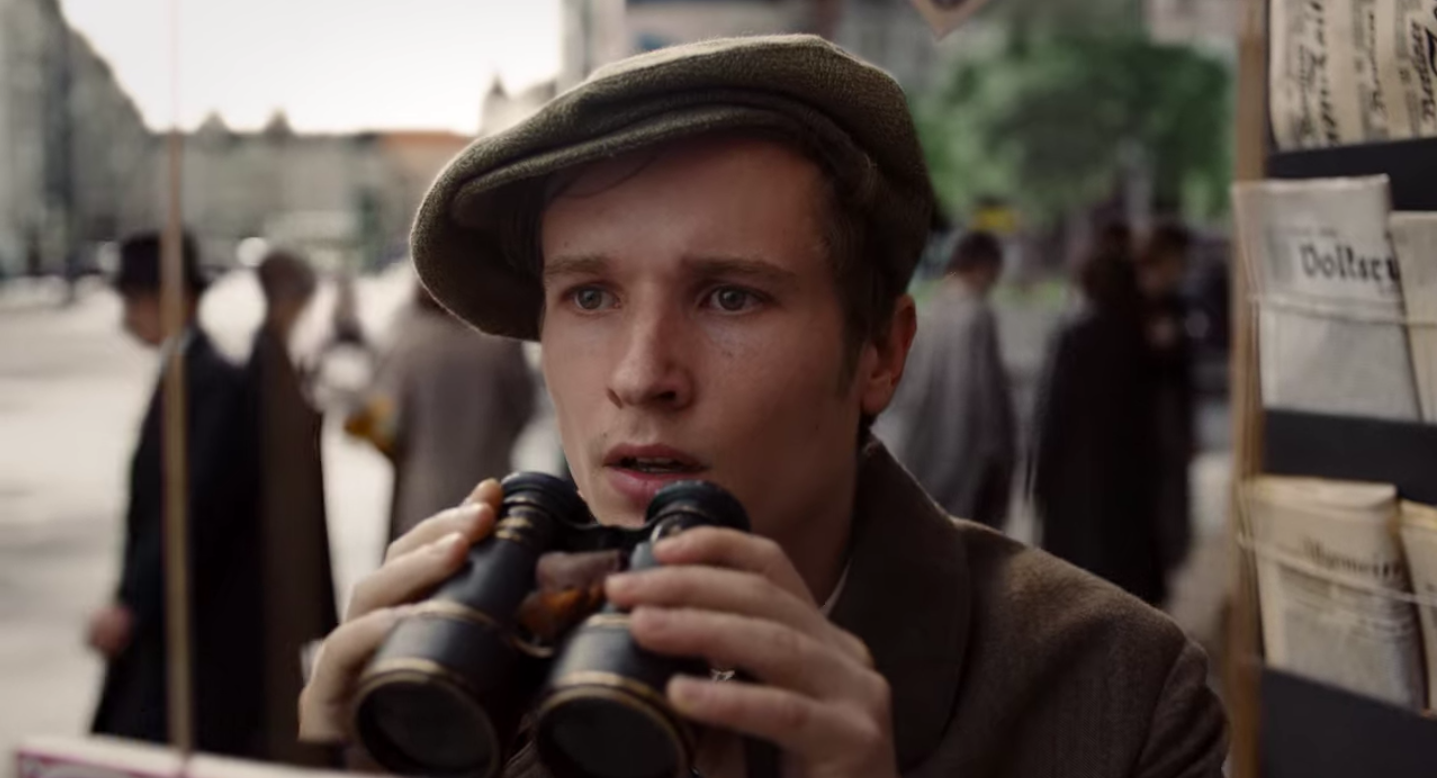
(For the foreseeable future — aka as long as this quarantine lasts — Emily will be watching the critically acclaimed German drama Babylon Berlin, a neo-noir set in 1929 Germany. The series is available on Netflix in the United States. For every installment, she will be joined by a special guest. Today’s guest is Indiewire Associate TV Editor Steve Greene. Find Steve on the internet at Indiewire and on Twitter.)

Emily: Steve! I’m so happy to be here with you as we begin season two of Babylon Berlin. Now, technically, since this was produced in tandem with season one, it really is more of a season 1.5. But I’m amazed how much these first two episodes move and act like a season premiere for a series that figured out what it did well in its first season and has moved to capitalize on those ideas in season two.
What I’m saying is that these episodes move. They’re an outgrowth of everything that happened in season one — in that the characters are literally looking into the massacre of the Trotskyists from “Episode 2” — but they feel just different enough story-wise to count as their own thing. The show even resolves the Gereon/Lotte split in, like, 10 minutes, as I figured it would. (As somebody who created a thing that unnecessarily split up its main pairing three times in its first season, I can sympathize.)
And the more I think about how these episodes move, the more I think about how much worse the American version of this show would be. And the more I think about that, the more I realize that every episode of the show would be 10 minutes longer for no good reason. On Babylon Berlin, even the scenes that are there purely to build character — like Lotte and Greta at the baths — end up being purposeful and meaningful. They contribute to the plot on some small level. And they have interesting, nuanced conflicts undergirding them.
What I’m saying is that one of the best things about this show is that every episode is 45 minutes. What do you think of time, Steve?
Steve: Emily! That was one of my main takeaways from these episodes, too. (You took the words right out of my….fingers, I guess?)
I suppose that’s something inherent to stories centered around detectives — by their nature, you’re going to have plenty of situations where either the person asking questions or the person guarding their valuable information needs a quick refresher. Maybe this section of the story has a tad more catch-up information than usual (especially where our old buddy Nyssen is concerned), but I wonder if that’s a just a happy byproduct of Gereon and Lotte being inherently inquisitive characters.
That time constriction is helpful as a bit of consistency across episodes, but it also leaves just enough room for little grace notes like Lotte looking around the office after she’s been officially designated as part of the investigation. That gradual, creeping smile is so satisfying because it’s a rare moment of happiness for Lotte that she can appreciate on her own time and her own terms. It’s not directly tied to anyone. In turn, the show doesn’t have to sacrifice too much of its runtime. Of course, when you have eight episodes of groundwork set, those moments don’t have to last long to leave an impression.
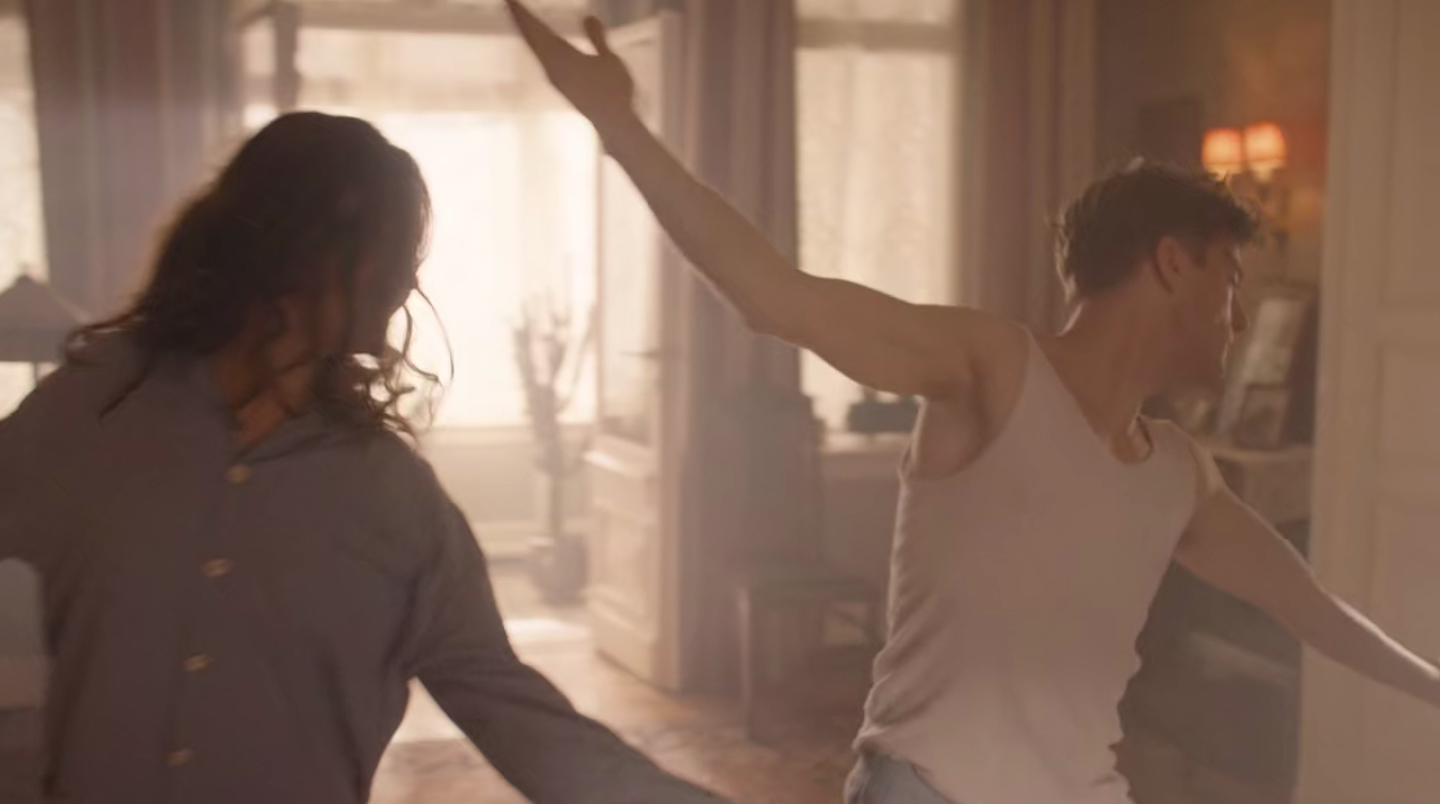
At the risk of jumping ahead, in my mind, that delightful opening to “Episode 10” was this flowing, 5-minute dream sequence between Helga and Gereon wearing tasteful powder blue PJs and living out everyone’s fantasy of turning breakfast time at their AirBnb into an intermediate couples dance class routine. But it somehow packs all that escapist energy into 90 seconds.
So far, Babylon Berlin has done an impressive job at giving the breadth and scope this story needs — on a personal and citywide level — without feeling the weight of all the steps in between. From your conversation with Allison, it seems that you were skeptical of how the added Helga angle would fit into the framework of the show. I was, too. At this point for you, is she a welcome sip of warm soup or the burnt leftovers from that mini grease fire?
Emily: I had the same feeling about that dance sequence! It took something I was skeptical of (the integration of Helga into the story) and made it something I was actively interested in. Her primary function in the story is still “Gereon’s lover whom he has a complicated relationship with,” but that dance sequence lets us see her happiness and her sense of freedom at being with the man she loves. She’s been carrying a lot of guilt, and now, she can believe it’s all on the way out.
But I also love the way the show subtly inserts conflict into this relationship in the form of her son, who is not happy about the fact that Gereon is banging his mom. His dad will come back. He just knows it. And because this is a TV show that loves plot complications, he might be right. (Honestly, Moritz feels like the one character who knows he’s living in a TV show, but because he’s a kid, I kind of love that choice for him.)
I think this is also working for me, because it contrasts with Lotte’s home life, which is just a major fuckin bummer. These episodes do a solid job of largely creating a situation where Lotte can probably just never go home again, and they made me realize how disengaged I was from the stories involving her family. Yeah, I liked some of the stuff set here, but her brother-in-law was so comically terrible that I never quite bought in to the story like I think I was supposed to. The death of her mother — foreshadowed heavily in season one — largely casts her off into the wider world, and for now, at least, she’s living with Stephan’s family. (Heavy emphasis on “for now.”)
These two episodes introduce new characters and situations at a gallop. Liked Nyssen? Well, now you get to meet his domineering mother (I love this for him). Wanted more portly gentlemen working in the Berlin police department? Well, here’s Ernst “Buddah” Gennat (based on a real dude!), who is here to crack the case using his unusual methods. Want to know more about the shadowy forces tying the Soviets to the Black Reichswehr? Here’s… well, these characters aren’t all that interesting yet, but they are characters.
As we ramp up season two, which of these new storylines is working best for you, Steve? And are you on team “Gereon and Lotte should kiss”? Or are you a traitor rooting for Helga now?
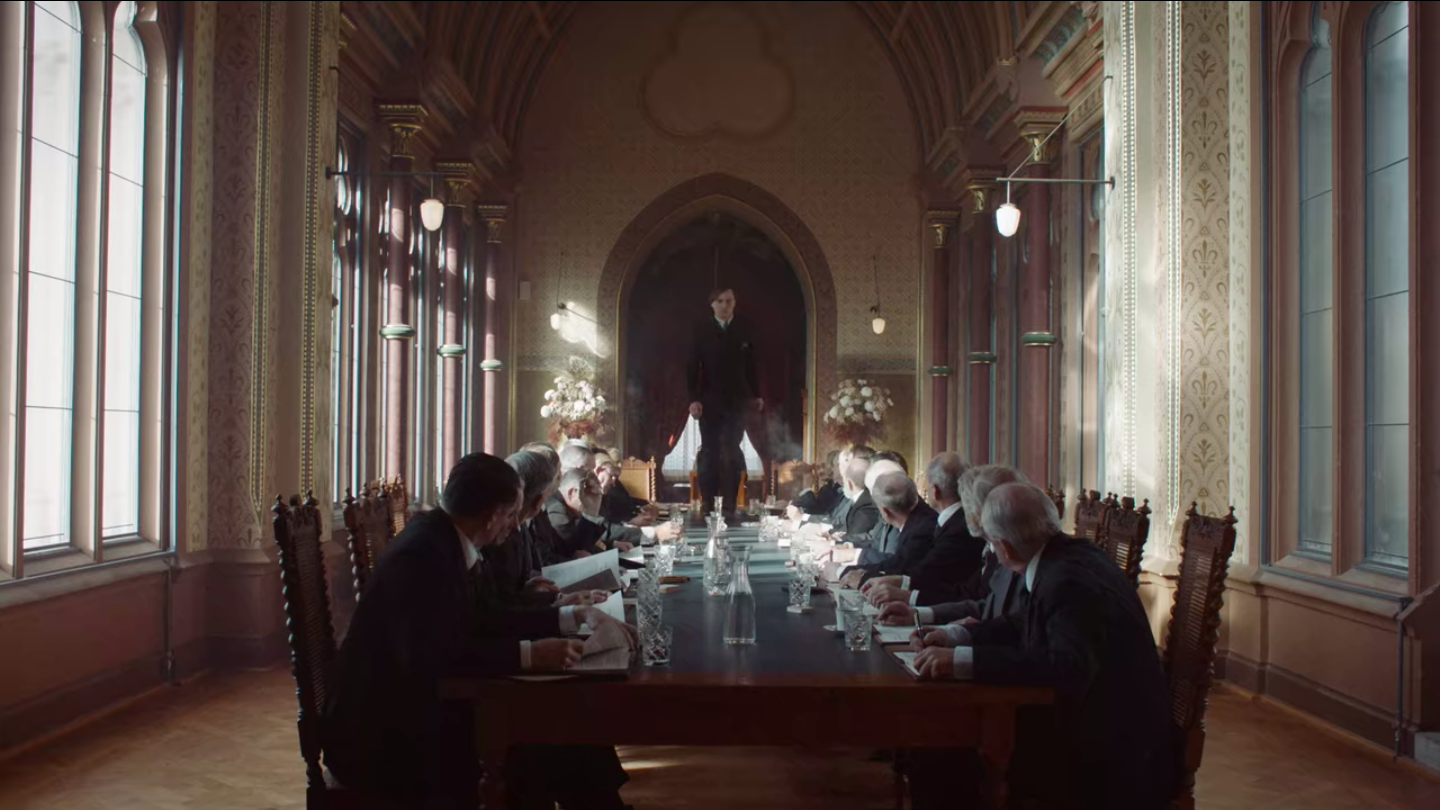
Steve: I’m on Team Landlady! Did you see how happy she was after her and Gereon’s night together? And how sad she looked smoking that cigarette, knowing that their fling was over?? Justice for the Landlady!
I’d been so focused on the immediate awkwardness of this new family dynamic that I hadn’t thought much about the possibility of Anno actually coming back. Maybe it’s the English translation, but they sure do put a lot of emphasis on him being “declared” dead rather than have Helga proclaim him to be so. Now that you’ve said that, him popping up somehow wouldn’t surprise me either.
I have been enjoying the way that these episodes build out more of the police staff. (In the world where nothing bad at all was on the horizon for these characters and this was somehow a workplace comedy, I’d like to think that Czerwinski, the guy who forgot to do the Russian translation, could hold his own as a Scully/Hitchcock type.)
And if you’d asked me five minutes before the end of “Episode 10” which new storyline was working most, I’d have said the sharper focus on Stephan. His status as a relative newcomer to this thorny law enforcement was an interesting contrast to the way Lotte is still finding her way around the interoffice politics. And I’m a sucker for unrequited crushes (did I mention the Landlady??), though watching/sketching someone else as they sleep is certainly more questionable than he thinks it is. Still, I will miss Stephan and his parents, if that’s the last we see of them.
For a show that usually has a firm handle on presenting grim realities of the time, the particulars of Lotte’s home life do seem to be a bit of an outlier. But once the show leaves the walls of that living space, I start to see why all of it is there. Bruno handling the removal of the mother’s body seems like a meaningful development in that complicated relationship. And now the show has both Gereon and Lotte working through their feelings of losing a family member. They both try their best to put on an unaffected exterior, but there’s clearly some unprocessed emotions lingering inside each of them.
On that note, these two episodes did seem to have more glimpses than usual into Gereon and Lotte’s mind, particularly as they’re matching familiar faces to new developments. Do you feel like the show is leaning on that device too hard? Or does that just come with the territory for drama with as large a web as this one’s weaving?
Emily: It’s a huge tapestry this show is trying to weave, isn’t it? Like the relationship between Greta and Fritz is so important both episodes touch on it, but we barely get to see it. And the one time we get to see Fritz himself, he’s marching in a rally against the police, angered at the deaths of his friends and turning that anger toward Greta’s employer: Benda. Knowing what we know about what’s coming, none of this bodes well.
But this political storyline — which is about the growing unrest against the standing German government that led to the literal rise of the Nazis — is like the ninth or tenth most important thing going on in this show at the moment, and it can be hard to keep track of everything. That’s why I appreciate the little flashes, here and there, to things that happened in the past. They help me orient myself in the increasingly gigantic reach of the show, similarly to how everyone in town apparently just loves to go to the Moka Efti, because it’s plot convenient.
But I also love the show’s increasing comfortableness with surrealism. When Nyssen gets up from his seat and walks across the table at that disastrous meeting, you know it’s a goof, but it makes the cut back to his solemn face that much more powerful. And when Helga imagines dancing with Gereon, it captures the way she feels so much more powerfully than any dialogue could have. This is a series that takes big swings, and for that, I’m grateful.
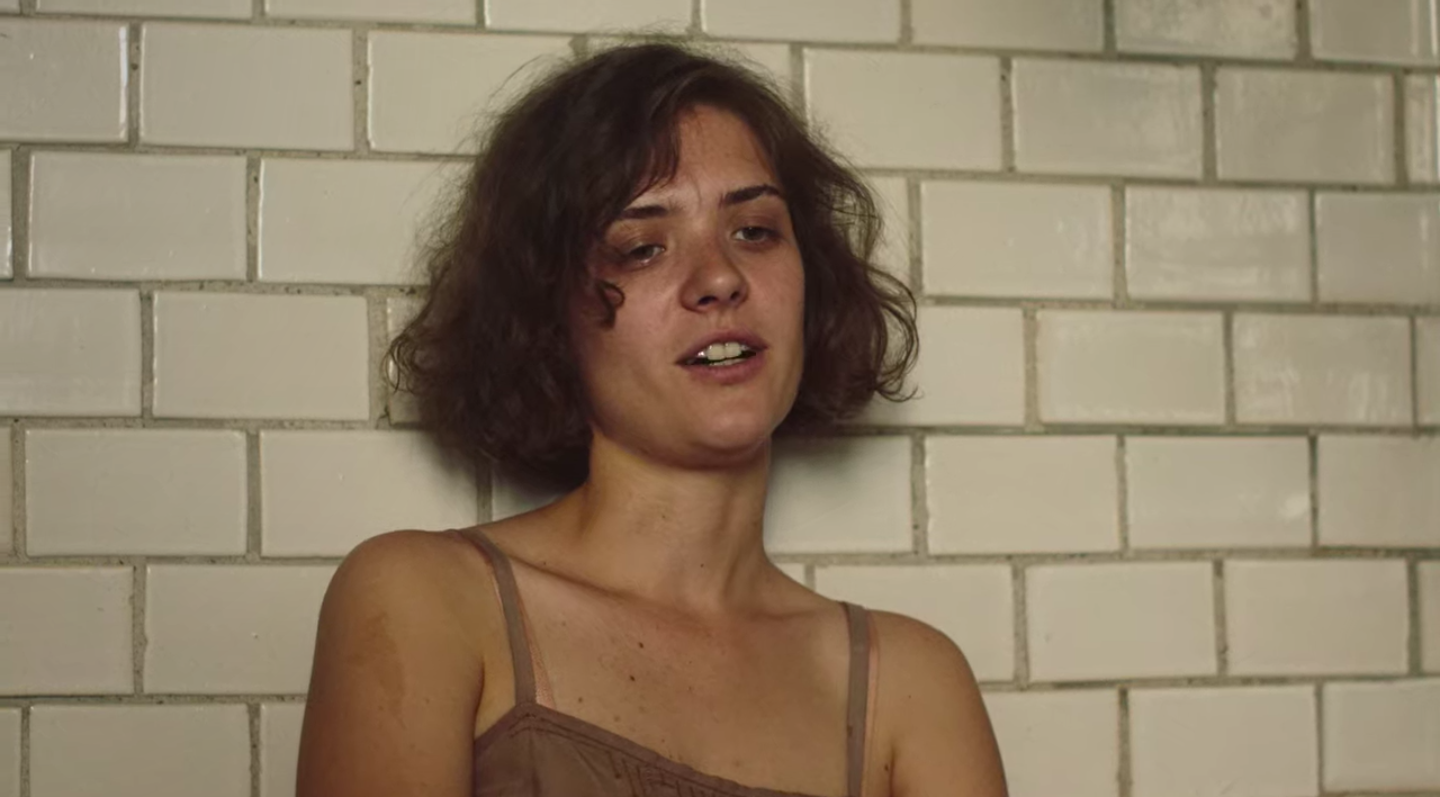
Perhaps the biggest swing of all is how “Episode 10” uses Stephan to start knitting together many of the show’s plots by dragging the Soviet gold train and the Black Reichswehr stuff ever closer together, while also pretty clearly implicating Bruno. (If Bruno wasn’t the guy who killed Stephan at the end, I’ll eat my jaunty hat.) Right around the midpoint of the episode, as Stephan’s parents were being so kind to Lotte, my wife said, “Oh, he’s gonna die, huh?” and the rest of the episode — with his essential sweetness constantly on display — did nothing to disabuse us of that notion. And then, of course, he did die, a bullet through his head.
Speaking of bullets, though, the show added one more spinning plate to Gereon’s large collection when he became convinced he was the guy responsible for the death of Father Josef (because he very likely was). His cover-up of his crime is pretty sloppy, but by pointing any finger of suspicion at Bruno, he’s also created a situation that might end up accidentally pointing to the correct villain, a thing that happens often on this show. (I’d say it was a commentary on how in a society this corrupt, everyone is ultimately a villain, but let’s not push this too far.)
Steve, what do you make of these bullets — both the ones that Gereon swaps to hopefully clear his name and the one that takes Stephan’s life?
Steve: I appreciate those tiny period-specific process nods. The idea that Gereon would just reach for a bloody bullet from a bedpan makes sense in a society less concerned with germs, but also for an ex-soldier who’s lived through far worse experiences. (Side note: for anyone curious about the hospital Lotte’s family mentions and who might be looking for another German-language Netflix show, there are two seasons of Charité available to stream now. The first season set in the late 19th century is hit and miss, but now I’m really curious to see season two, which is set during WWII.) Even the quick scene of Gereon and Lotte going through the evidence locker to find the train certification is a fun reminder of the kind of analog archives they had to work with.
We’ve seen detectives manipulate evidence before, but it’s usually more satisfying in cases like this where the audience has more information than the person trying to cover their tracks. In the same way that the show isn’t playing coy with what the viewer knows is on the historical horizon, there’s a certain inevitability to how all of these people seem fated to collide. It’s more about the incremental steps that get everyone to the point where they realize what part they’ve played, even if it’s right before someone removes them from the equation.
Like you, I’ll be shocked if it wasn’t Bruno that murdered Stephan. The choice to keep that a nominal secret for now seems like the show avoiding stacking one surprise on top of another right at the end of an episode.
I loved that Nyssen moment too. (Almost as much as his massive straight-leg bootcut trousers!)
Emily: Steve, hold up for a second, I’m hearing that Emma Fraser, who helped me with the recap of “Episode 5” and “Episode 6” has more pants intelligence!
Emma: Hi, everyone. I adore this show so much!
The pants are called Oxford bags. They seem so crazy now but were of the fashion in the ‘20s and I think it speaks to Nyssen’s elitist/educated side (with his lack of actual military experience). Here’s a photo.
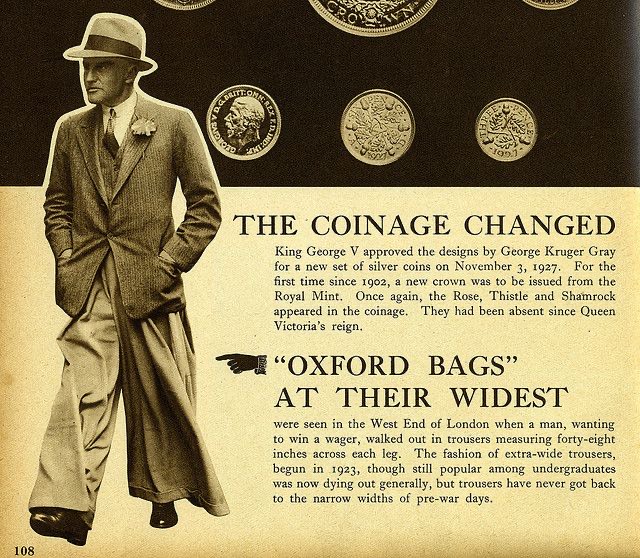
Emily: Thanks, Emma! Steve, you were saying?
Steve: I don’t think it’s a coincidence that this show has landed on a literal train car filled with gold as its central catalyst. It’s something you’d expect a cartoonish villain to wish for from a genie or an alien. The gold being a legitimate pawn in an international geopolitical shadow struggle ends up being part of that bridge between the real and the surreal. You understand why people are killing to keep control of it.
Oh, one more thing about those scenes at the station: pneumatic tubes! If I was somehow still on the fence after nine episodes, that right there would have won me over. Love a good pneumatic tube.
Emily: There’s nothing quite like a tube.
I will be honest: In season one, I was really enjoying the show and the story, but I wasn’t quite all in. I could go a week between watching episodes without too much trouble. But these two episodes made me itchy to watch more. They did what I want every show to do when it’s launching a second season: They created a compelling new reason for these characters to snap back together, while also building atop the stories of the past. And they moved.
Oh, and they had Gereon trying to keep from seeing Lotte naked when he surprised her at the baths, a moment that delighted me for its will-they/won’t-they fun and for the way it basically said phooey to the season one cliffhanger, as we all knew the show would. Babylon Berlin! It’s good!
Thank you for joining me, Steve.
Steve: This was a show I didn’t think could live up to “Zu Asche, Zu Staub” and I’ve been very happy to find that it’s only gotten better since those opening episodes. Thank you for letting me seek immortality with you!
The vast majority of my time’s spent at IndieWire, where I mostly write about TV but occasionally about podcasts, too. And until my dozen-year nemesis releases his username stranglehold, you can find me on Twitter @stevebruin.
Emily: Excellent! I’ll be back next week to talk “Episode 11” and “Episode 12” with Samantha Powell.




